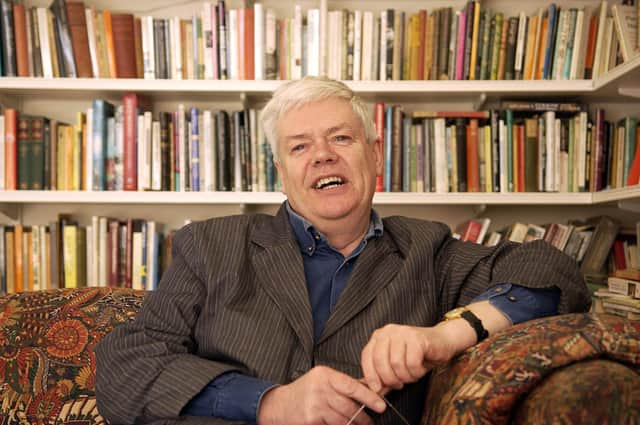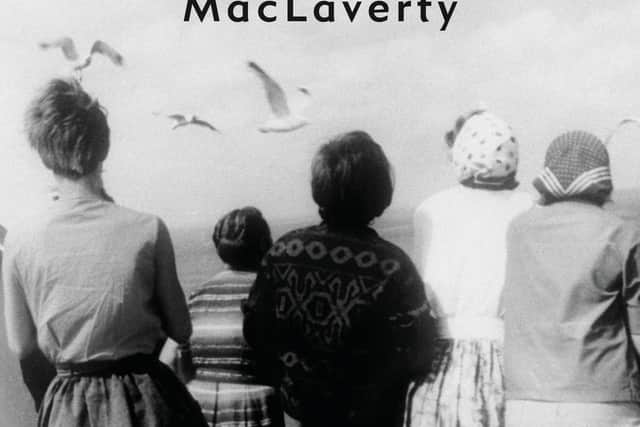Book review: Blank Pages, by Bernard MacLaverty


Short stories come in all shapes and sizes, but most fall into one of two categories. There are the stories which are essentially tales, anecdotes, the kind you can imagine yourself re-telling. Others are atmospheric pieces in which the narrative line is muted. Maupassant, Kipling, Conan Doyle, Maugham and Angus Wilson were masters of the first kind, Chekhov, Pritchett, Hemingway and William Trevor of the second. Of course, the distinction is neither clear nor fixed; the two types of story overlap, but it is still worth bearing in mind.
Bernard MacLaverty is a master of the second sort of story, writing it better than almost anyone else. By that I mean I can’t think of anyone who does it better, not even Alice Munro, one of the few to have won the Nobel for a body of work principally composed of short stories. MacLaverty could well follow her. He would surely be a more worthy winner than some recent recipients of the prize.
Advertisement
Hide AdMacLaverty is a poet of loneliness, of people making do in hard times. Born and reared in Northern Ireland, he has lived most of his adult life in Scotland, viewing his divided homeland from a short distance with an acute and sympathetic perspective. He is alert to prejudice, but, like Alexander McCall Smith, values the kindness that can deflect it. In the last story here a poor Catholic labourer who makes such a living as he can by doing odd jobs and fashioning walking-sticks, contracts septicaemia when a thorn pricks his wrist. The doctor, a pillar of the Orange Order, is at a loss. But it is wartime and there is an American camp nearby. He tells its chief medical officer of his dying patient. The American has a supply of the new wonder drug, penicillin and procures some, against regulations. The American himself is prejudiced, having no time for the Black troops in the camp. But duty and humanity prevail.


Kindness is at the heart of the first story too. It too is set in wartime, 1941. A mother has heard that her son’s ship has been torpedoed and sunk. It is believed there are no survivors. She us falling apart, her distress portrayed with tender sympathy. Then her niece returns from the cinema to say that the newsreel showed some rescued sailors arriving in Galway and she thinks, though the image wasn’t clear, that one was her cousin Frank. The mother sets out for the cinema, hoping there will be a second house. But all is darkness, the only person there being the manager who is closing up. She tells her story and he agrees, out of kindness, to run the newsreel for her, though it is a long time since he acted as a projectionist.
There are two stories, “Soup Mix” and “Wandering” which, though different in tone and content, both address the problem experienced by so many of coping with or caring for a mother in advancing stages of dementia. They are notable not only for the adult children’s sense of responsibility, but also for MacLaverty’s understanding of how the demented parent is a burden, an impediment to the daily life of the offspring. It’s no surprise that the daughter of one takes on more responsibility than the son of the other – though MacLaverty does not condemn him for his more perfunctory attention. He lives and works in another country, his attendance on his mother being therefore occasional.
There is not a dud in this collection. Each story demands the reader’s close attention. Each invites a second reading which in every case will deepen one’s understanding. There is humour in most of them too, even if it is sometimes the humour that comes from the sad and weary recognition that this is how life is. MacLaverty has a fine sense of place and is excellent on weather, both ways of establishing a story’s mood. He has never been an author who sought the limelight, but by shedding a sympathetic light on difficult moments in people’s lives, he enriches our experience of each other.
Blank Pages, by Bernard MacLaverty, Jonathan Cape, 261pp, £14.99
A message from the Editor
Thank you for reading this article. We're more reliant on your support than ever as the shift in consumer habits brought about by coronavirus impacts our advertisers.
If you haven't already, please consider supporting our trusted, fact-checked journalism by taking out a digital subscription at https://www.scotsman.com/subscriptions